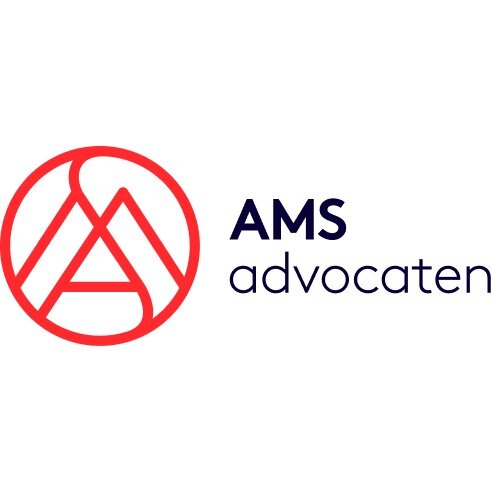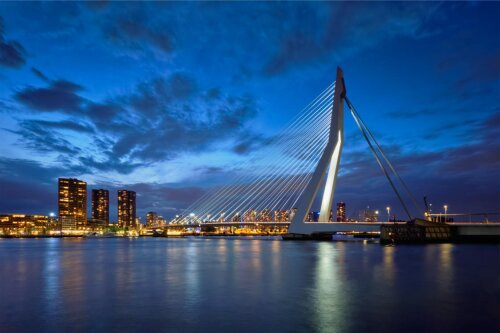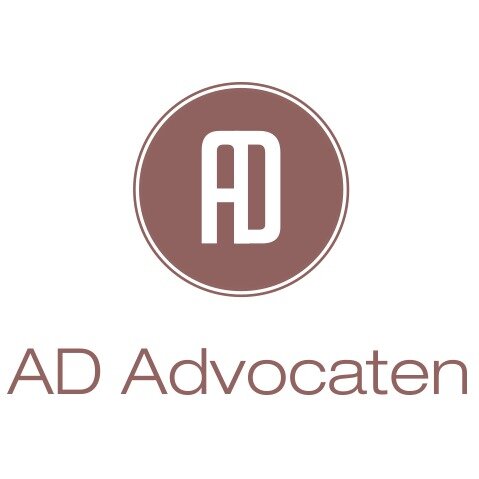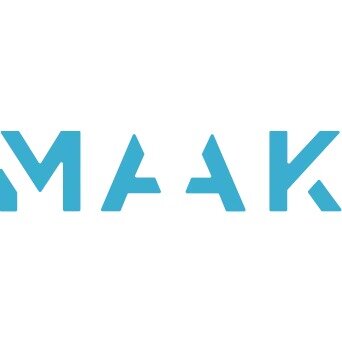Best International Trade Law Lawyers in Amsterdam
Share your needs with us, get contacted by law firms.
Free. Takes 2 min.
List of the best lawyers in Amsterdam, Netherlands
Netherlands International Trade Law Legal Articles
Browse our 2 legal articles about International Trade Law in Netherlands written by expert lawyers.
- Dutch BV Formation for EU VAT Deferment in the Netherlands
- Dutch BV Formation for EU Import Logistics and VAT Deferment Key Takeaways Establishing a Dutch Besloten Vennootschap (BV) is highly effective for non-EU companies seeking to manage European supply chains. The Netherlands serves as Europe's premier logistics hub, offering distinct corporate and tax advantages for international trade. A Dutch BV... Read more →
- Guide to Post-Brexit Trade via Netherlands Customs in 2026
- The Netherlands remains the primary "Gateway to Europe" for UK-based firms due to the Article 23 VAT deferment license, which eliminates the need to pay import VAT upfront. Compliance with "Rules of Origin" is mandatory for re-exporting goods into the EU to avoid double taxation under the EU-UK Trade and... Read more →
About International Trade Law in Amsterdam, Netherlands
International Trade Law in Amsterdam, Netherlands, is governed by a combination of international agreements, European Union regulations, and Dutch national laws. Amsterdam, as a prominent European trade hub, is subject to these overlapping jurisdictions which define the legal parameters of trade involving goods, services, and information. Dutch and EU authorities ensure that trade practices adhere to global standards, and facilitate cross-border commerce through well-defined legal frameworks. This involves everything from customs regulations to trade restrictions and tariffs. As a member of the EU, the Netherlands adheres to the EU's trade policies while also maintaining certain national rules ensuring compliance within its own borders.
Why You May Need a Lawyer
Engaging a lawyer specialized in International Trade Law can be crucial in various situations detailed below:
- **Contracts and Agreements**: Ensuring that international contracts adhere to applicable laws and protect your interests.
- **Customs and Tariffs**: Navigating complex customs regulations and managing tariff classification and duties.
- **Dispute Resolution**: Addressing disputes that may arise from trade agreements or international transactions.
- **Compliance**: Ensuring compliance with local and international trade laws, including anti-dumping regulations and export controls.
- **Intellectual Property**: Protecting intellectual property rights when trading across borders.
- **Trade Financing**: Understanding financing options for international trade and mitigating financial risks.
Local Laws Overview
Amsterdam, as part of the Netherlands, operates under a legal framework influenced by several key components relevant to International Trade Law:
- **EU Law and Regulations**: EU customs code and regulations significantly impact trade operations in Amsterdam.
- **Dutch National Laws**: The Netherlands implements its own trade laws including specific import/export regulations and compliance standards.
- **Trade Agreements**: The Netherlands participates in numerous bilateral and multilateral trade agreements that influence trade policies and practices.
- **Sanctions and Embargoes**: Dutch authorities enforce international and EU-imposed sanctions and embargoes that can affect trade transactions.
Frequently Asked Questions
What constitutes International Trade Law?
International Trade Law encompasses rules and regulations governing trade across national borders, including treaties, international agreements, customs laws, and the activities of institutions like the World Trade Organization (WTO).
How do local laws affect international trade in Amsterdam?
Both EU regulations and Dutch national laws must be adhered to. Local laws can influence various aspects of trade, from the classification of goods, tariffs, and sanctions.
What are common trade barriers in Amsterdam?
Trade barriers can include tariffs, customs regulations, import/export licensing requirements, embargoes, and technical standards, all underpinned by EU and Dutch laws.
How can a lawyer help with exports to non-EU countries?
A lawyer can provide guidance on compliance with foreign trade laws, assist in drafting international contracts, and help navigate any trade restrictions or disputes that arise.
What are the implications of Brexit on trade in Amsterdam?
Brexit necessitates specific considerations regarding tariffs, customs procedures, and regulatory compliance when trading with the UK.
Are there specific considerations for digital trade?
Yes, digital trade requires attention to data protection regulations, intellectual property rights, and e-commerce laws.
How does the Netherlands handle trade sanctions?
The Netherlands, following EU directives, enforces trade sanctions and embargoes as part of its foreign policy and trade compliance obligations.
What kind of licenses might be needed for trading activities?
Licenses may be required for exporting certain controlled goods, importing specific products, or distributing regulated commodities.
Can International Trade Laws impact tariffs and duties?
Yes, international agreements and local laws determine the applicability and rates of tariffs and duties on goods traded across borders.
What should be considered when drafting an international sales contract?
Key considerations include the choice of law, dispute resolution mechanisms, terms of delivery, payment conditions, and risk allocation.
Additional Resources
For further assistance, consider reaching out to the following resources and organizations:
- **Netherlands Enterprise Agency**: For information on trade regulations and export support.
- **Dutch Customs**: For guidance on customs procedures and import/export requirements.
- **European Union Trade Policy Resources**: For comprehensive information on EU trade regulations affecting Amsterdam-based businesses.
- **World Trade Organization (WTO)**: For international trade norms and dispute settlement resources.
Next Steps
If you require legal assistance in International Trade Law, consider the following steps:
- **Research Suitable Law Firms**: Look for firms with specific expertise in International Trade Law in Amsterdam and the Netherlands.
- **Consult Industry Associations**: Organizations like the International Chamber of Commerce (ICC) may offer recommendations or resources.
- **Schedule Consultations**: Engage in initial consultations to discuss your specific needs and consent terms before proceeding with legal representation.
- **Prepare Relevant Documents**: Gather all necessary documentation related to your trade activities to facilitate efficient legal consultation.
Lawzana helps you find the best lawyers and law firms in Amsterdam through a curated and pre-screened list of qualified legal professionals. Our platform offers rankings and detailed profiles of attorneys and law firms, allowing you to compare based on practice areas, including International Trade Law, experience, and client feedback.
Each profile includes a description of the firm's areas of practice, client reviews, team members and partners, year of establishment, spoken languages, office locations, contact information, social media presence, and any published articles or resources. Most firms on our platform speak English and are experienced in both local and international legal matters.
Get a quote from top-rated law firms in Amsterdam, Netherlands — quickly, securely, and without unnecessary hassle.
Disclaimer:
The information provided on this page is for general informational purposes only and does not constitute legal advice. While we strive to ensure the accuracy and relevance of the content, legal information may change over time, and interpretations of the law can vary. You should always consult with a qualified legal professional for advice specific to your situation.
We disclaim all liability for actions taken or not taken based on the content of this page. If you believe any information is incorrect or outdated, please contact us, and we will review and update it where appropriate.















